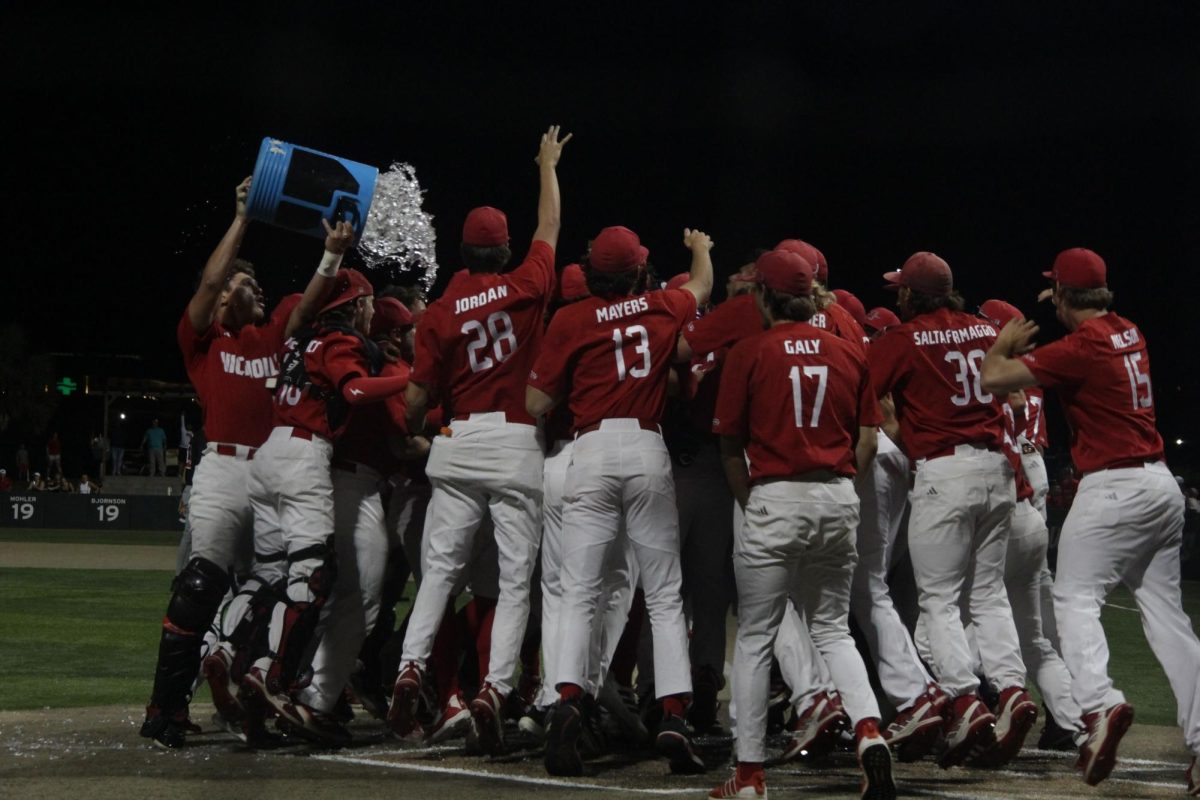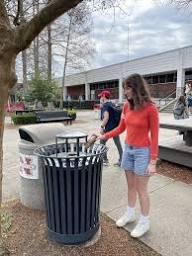While in college, some students struggle with financial issues and resort to unconventional means to provide for themselves. According to a study done by CopyBoy.com, 80 percent of college students work, while nearly 40 percent sell their textbooks online or to a bookstore.
“Yeah, I’ve sold textbooks back to the bookstore before, just because I didn’t need them,” Josh Dedeaux, freshman from New Orleans, said. “I got $70 for two books which [was horrible] because I paid $170 for both all together.”
“I never spend more than $150 on books,” Arnie Robinson, business senior from Buffalo, N.Y., said. “I always save [my books] over the summer and sell them online. I can usually sell them for more than I paid for them on EBay or Amazon.”
Some students still rely on their parents to support them.
“I don’t [struggle with money],” Emiri Shimata, accounting sophomore from Yokohama, Japan, said. “[My parents] pay for my education. I’ll pay them back later.”
Other students rely on credit cards. In an Education Resources Institute poll, 64 percent of college students get credit cards for non-essentials, while 52 percent get them to build credit history and 45 percent for emergencies. The average credit card debt for college students is $986, and 14 percent of students carry balances of $3,000 to $7,000. Studies done by collegedoor.com indicate that 83 percent of college students have a credit card, and nearly one-third have four or more. In a study released by the Consumer Federation of America, student debt is not caused by irresponsibility but by peer pressure to spend and financial inexperience.
According to a CNN.com poll, half of those surveyed, who either never enrolled or dropped out of college, said money was their primary concern. The desire to work now and realize some financial gain outweighed their investment in the future. The same number of students stated that college was simply not an option due to fiscal limitations.
“The government feels that, first and foremost, it is the family’s responsibility to help pay for their child to go to school,” Colette Lagarde, director of financial aid, said. “They come up with what is called an expected family contribution, and that’s how much [money] they feel the family can contribute, but that doesn’t necessarily mean that is what they can contribute. I definitely think college students struggle.”
“I would recommend that all students apply for financial aid. Sometimes people think that they won’t be eligible, but most students are eligible for something, even if it is in the form of a loan,” Lagarde said.
Some students have gone through extremes to make money to attend college. Not only do students sell their textbooks back to bookstores or online, but according to Robinson, some students, like he, donate time to science and get compensated for it.
“I’ve sold my body to science to make money once or twice. True story. Last summer I spent two weeks in a hospital taking medicines for like $3500 to pay for my bills. I [also] take out loans. My parents don’t give me a penny,” Robinson said. “I was a part-time waiter in New York, while I was working full-time in construction and a full-time student. The financial aid is out there. Sometimes it’s just not enough.”
According to the Office of Financial Aid, as of Feb. 14, 4,652 students at Nicholls received aid from one or more of the following Title IV financial aid programs in 2004-2005: federal Pell grants, federal supplemental education opportunity grants, federal Perkins loans, federal subsidized loans, federal unsubsidized loans, federal PLUS loans and federal work-study.


![Assistant coach Cody Livingston [#53] talking with pitcher Nico Saltaformaggio [#38] on the mound(5/12).](https://thenichollsworth.com/wp-content/uploads/2024/05/LivingstonNicoHuddle-vs-Lamar-1200x800.jpg)




